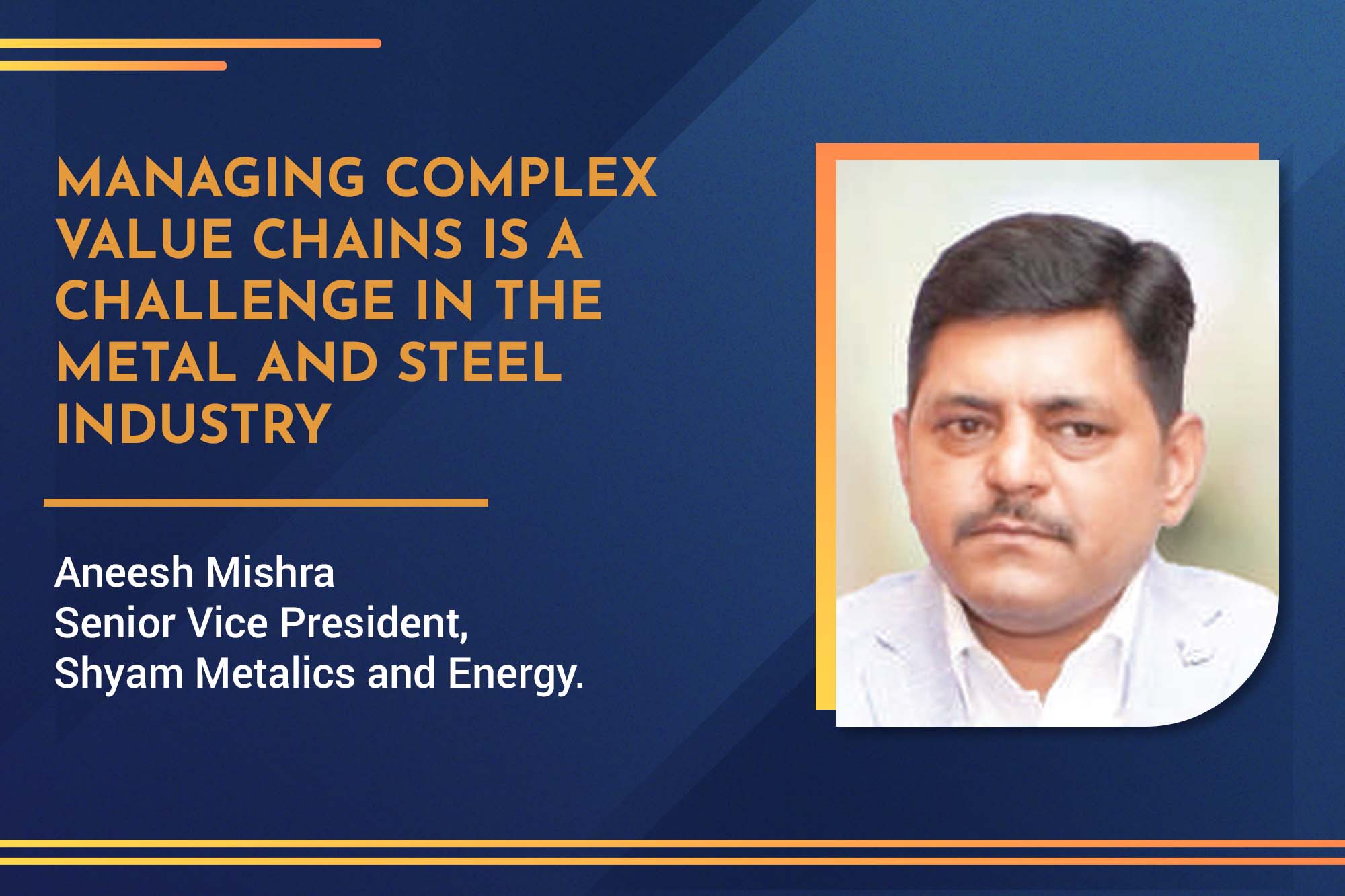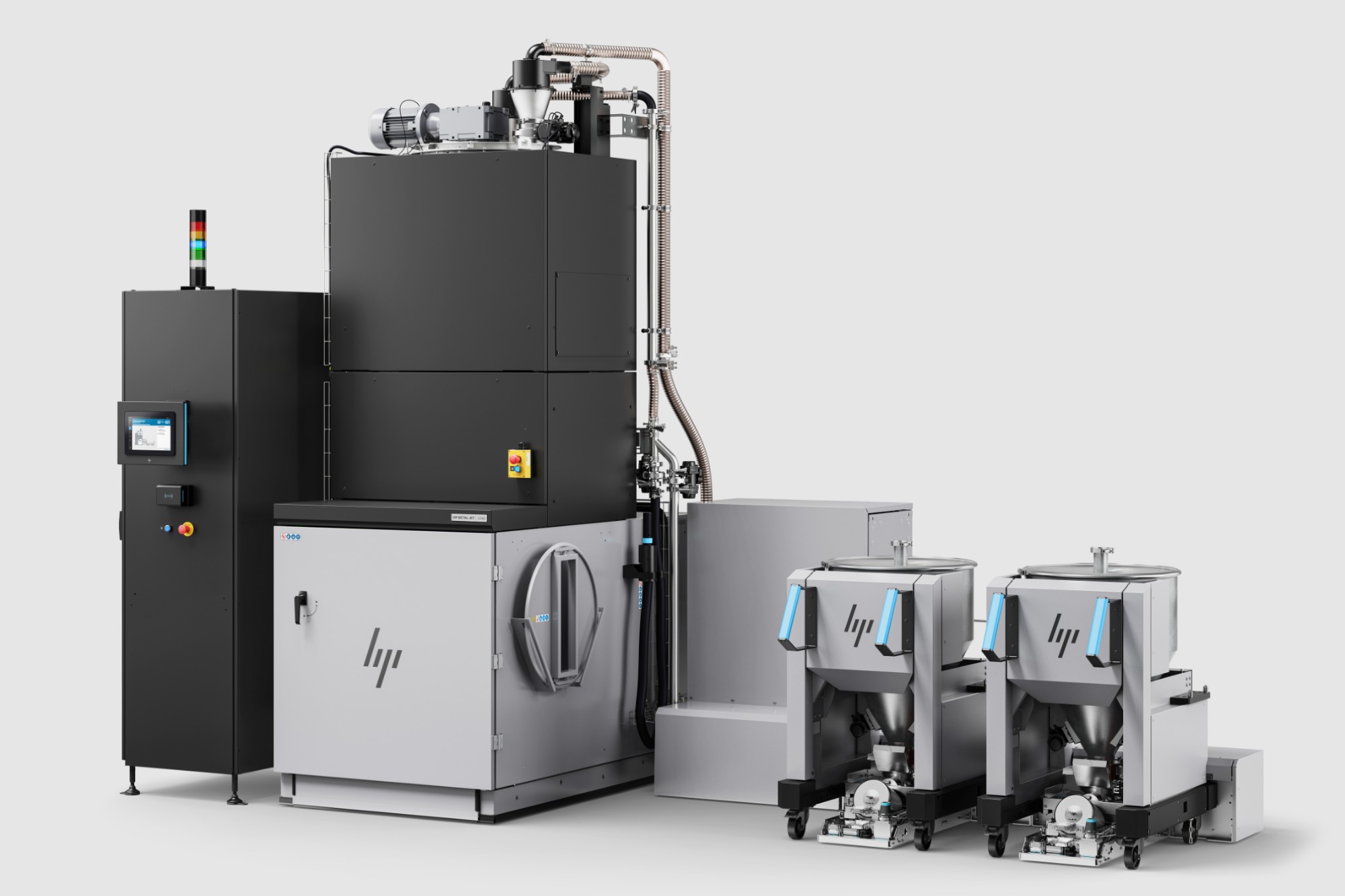Managing complex value chains is a challenge in the metal and steel industry
By OEM Update Editorial November 30, 2023 2:23 pm IST
Aneesh Mishra, Senior Vice President at Shyam Metalics, shares insights on technological advancements, challenges, sustainability efforts, and the company’s strategic outlook, emphasising its pivotal role in shaping India’s metal industry landscape.
How do technological advancements contribute to the growth of the metal industry in India?
Technological advancements are integral to the growth of India’s metal industry, which CRISIL forecasts will grow at a 7.5 percent CAGR by 2026. Shyam Metalics and Energy is a key player in this evolution, strategically investing in advanced technologies such as automation, sustainability, quality control, data analytics, digital supply chain management, R&D, and workforce training. These initiatives align with industry trends, boosting efficiency, sustainability, and global competitiveness.
Technological innovations drive Indian metal industry growth by enhancing efficiency, sustainability, quality, and data-driven decision-making. Shyam Metalics and Energy actively participate by embracing cutting-edge technologies and consistent investments in research, development, and employee training. Through these efforts, we contribute to the sector’s modernisation and growth of the Indian metal sector while ensuring global competitiveness.
How do we address the challenges the metal and steel industry faces?
Managing complex value chains presents a major challenge in the metal and steel industry in the metal and steel industry. Organisations operating in this sector must devise strategies to manage an extensive network of interconnected assets effectively, varied product ranges with evolving quality standards, and the intricacies of distribution channels, all of which impact profit margins differently.
Addressing these challenges is a priority for our company. We have implemented cost-effective sourcing strategies to counter the effects of volatile raw material costs. Our integrated business model distinguishes us, which grants us a significant edge. Controlling the entire production cycle, from ore extraction to final metal output, effectively allows us to manage costs and price fluctuations. This holistic approach enables us to navigate market fluctuations more skillfully than firms without integrated steel plants.
What emerging technological advancements within the Indian metal industry hold the potential to transform the sector shortly?
Advancing technology in India’s metal industry is poised to revolutionise traditional business models. Digital innovations are poised to empower the sector, enabling proactive solutions to unforeseen challenges and bolstering its competitive edge.
Companies in this industry can leverage the advantages of emerging technologies, including predictive analytics, the Internet of Things (IoT), and data lakes. This trend reflects growing recognition of technology’s immense potential in enhancing efficiency and competitiveness and creating a more adaptable business environment.
Looking ahead to FY 2024, what is the company’s outlook on expanding current capacities?In the fiscal year 2023-2024, our primary revenue generation focus is the retail sector. We actively monitor market trends and consumer behaviours, allowing us to adapt as needed swiftly. Our aim is to profit in retail and establish long-term sustainability. To diversify our portfolio, we are strategically pursuing mergers and acquisitions.
Our recent venture delves into the energy storage sector by producing battery-grade aluminium foil, crucial for Lithium-ion cells. This move aligns with India’s AatmaNirbhar Bharat initiative, promoting domestic involvement in battery energy storage. With an annual production capacity of 20,000 tons of aluminium foil, Shyam Metalics positions India to claim a significant share of the global raw materials market for Lithium-ion cells. Notably, this market is projected to reach a capacity of 6,500 GWh/year by 2030.
In what ways are digital platforms and software solutions reshaping the optimisation of metal projects?
Digital platforms and software solutions are transforming the landscape of metal projects in India, and our company strategically embraces digital advancements. Leveraging cutting-edge CAD software for precise planning, digital project management tools for seamless execution, and IoT for real-time monitoring, we also utilise digital supply chain solutions for optimisation. We also employ data analytics, quality control software, energy management tools, and digital collaboration platforms. This comprehensive integration of digital tools optimises every facet of metal projects, ensuring efficiency, cost savings, timely execution, and compliance with safety and environmental standards. By adopting these digital innovations, we’re leading technological advancement in the metal industry, fostering sustainable growth and enhancing competitiveness in the market.
How does your company manage supply chain disruptions and fluctuating raw material costs, and what strategies ensure a stable supply chain?
Our integrated steel plant is a crucial advantage, empowering us to navigate supply chain disruptions and fluctuations in raw material prices. This integral part of our operations grants us complete control over the production process, from raw material procurement to finished goods.
This unbroken chain of oversight ensures a consistent and uncompromising quality standard across our extensive product range. This steadfast consistency bolsters our reputation and poses significant challenges to counterfeiters seeking to replicate our offerings. Counterfeiting becomes complex when confronted with the stringent quality control and authentication measures inherent in our operations. Ultimately, this reinforces the trust and credibility we offer to our clientele.
While prioritising sustainability in operations, what actions is your company taking to minimise its environmental impact within the metal industry?
We are committed to carefully managing our environmental impact, specifically targeting the reduction of carbon emissions. Our top priority is to keep our carbon footprints well below regulatory standards.
Furthermore, our dedication to environmental responsibility surpasses mere compliance. We actively participate in initiatives that promote an eco-friendly environment around our plant. Our goal is not solely to minimise our ecological impact. It also contributes to the larger mission of preserving and enhancing the natural environment in which we operate.
Cookie Consent
We use cookies to personalize your experience. By continuing to visit this website you agree to our Terms & Conditions, Privacy Policy and Cookie Policy.









